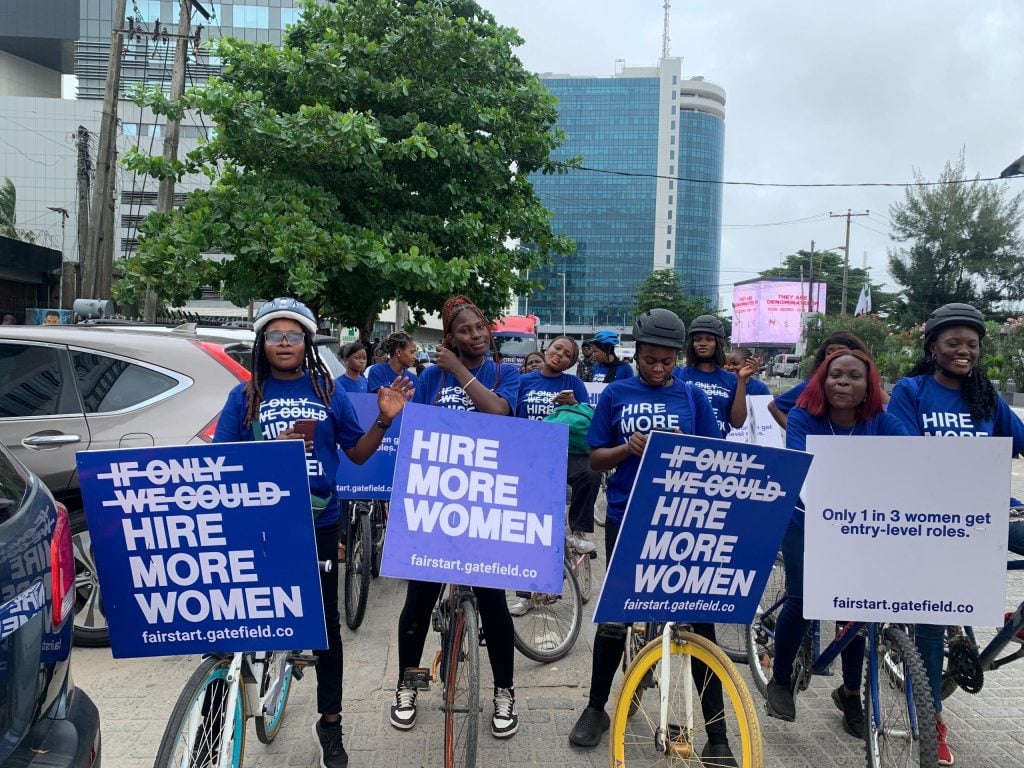Amina Oyagbola
Too often, gender equity is treated like a destination. We wait until a woman is appointed to a board before we celebrate. We count the number of female directors or commissioners and use that to measure success. But in Nigeria’s workforce, the real story begins much earlier and much lower.
Women make up over 50 per cent of Nigeria’s labour force but hold only 33 per cent of entry-level roles in the formal private sector. That early imbalance creates a bottleneck that persists through every stage of the leadership ladder. The truth is: if women are excluded at the entry point, they never get the opportunity to rise. This isn’t just a case of inequality. It’s a case of lost potential. Companies are limiting their talent pool from day one, and the economy is suffering for it.
The McKinsey report makes it clear. In sectors like finance and health, where women begin strong, the drop-off between middle and senior management is sharp. In health, the representation of women falls by 10 percentage points from manager to senior manager. In finance, the drop is 13 points from entry to senior leadership. Even worse, women who make it to the top often don’t stay. For every 10 women promoted to senior leadership in Nigeria, three leave within a year, a third of them due to workplace bias or blocked career growth. This is not a pipeline that leaks. It’s one that was never properly built.
The problem is not only a pipeline issue. It is a data issue. If 77 per cent of CEOs say gender diversity is a priority, but 33 per cent of companies don’t even track their own numbers, then we are mistaking good PR for good policy. The Nigerian Exchange Group, through the Nigeria2Equal programme with the IFC, is showing what’s possible—publishing gender-disaggregated data, pushing reforms, and becoming the first stock exchange globally to earn EDGE certification for gender equity. Change is possible. But it must scale.
A closer look at the Nigerian Exchange Group’s internal gender metrics from 2021 highlights just how deeply the entry-level challenge runs. Across the NGX Group, women make up only 27 per cent of staff, and in the real estate division, that number plunges to 18 per cent—even though women hold 50 per cent of board seats. Contrast that with the NGX Regulation, where women account for 57 per cent of the workforce. These disparities tell a clear story: achieving gender balance at the top is far easier than building it from the ground up. The structural problem starts at recruitment; if women aren’t hired in the first place, they will never reach leadership.
Fixing this requires rewiring the system. It means setting entry-level gender targets with the same urgency as board quotas. It means publishing disaggregated data on hiring, promotion, and attrition and acting on it. It means building structured mentorship and sponsorship programmes so that women aren’t just admitted but equipped to rise. And it means embedding flexibility and caregiving support into workplace culture, not as perks, but as fundamentals. Women don’t just need opportunities. They need champions. And those champions must be built into the system.
These are not soft measures. They are performance levers. Companies with gender-diverse leadership are up to 25 per cent more likely to outperform financially. Even one more woman in senior leadership is linked to stronger returns. But that won’t happen unless companies shift their focus from the boardroom to the break room.
For so long, corporate Nigeria has treated gender equity like a side project—something to get to after quarterly targets are hit. That’s not just shortsighted. It’s self-defeating. We have spent too long celebrating symbolic breakthroughs. It’s time to focus on structural ones.
And here’s the kicker: Nigeria doesn’t just need more women at the top. It needs more women in the building. Because if you are not hiring women at entry, tracking their growth, or making it possible for them to lead, you are not building an equitable workplace. You are just branding one. And in this economy, the companies that will win are not the ones with the best slogans. They are the ones who opened the door and kept it open.
Amina Oyagbola, founder/chairperson, Women in Successful Careers & board chair, Afrobarometer, writes from Lagos
Copyright PUNCH
All rights reserved. This material, and other digital content on this website, may not be reproduced, published, broadcast, rewritten or redistributed in whole or in part without prior express written permission from PUNCH.

